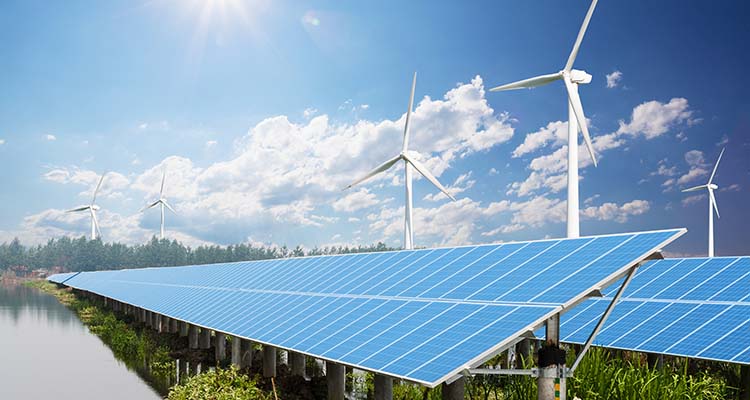BEE believes Germany might not reach energy goal
The German energy association BEE believes that Germany might not reach its goal of covering 18% of its energy requirements with renewables by 2020.
A while ago, Germany decided on an ambitious energy goal: by 2020, 18% of all energy requirements should be covered by renewable energies. Now, however, it seems that this might not happen: according to German renewable energy association Bundesverband Erneuerbare Energie (BEE), an additional 22 TWh of green energy need to come from power, heat and transport sectors in order to achieve this target. Meanwhile, if the current growth rate of renewables in Germany continues, by 2020 clean energy will make up a maximum of 16.7 % of the energy mix, or so BEE expects.
BEE has developed various solutions
It is, however, not too late to reach this goal, or so BEE believes. The association has developed and presented a path that might lead to this – if the power, heat and transport sectors produce an additional 22 TWh per year. In total, 111 TWh will have to be added. 70 TWh could come from the power sector, while the heat and transport sectors would have to account for 16.4 TWh and 24.6 TWh, respectively. Across the three sectors, renewables will have to deliver at least 75 TWh during the period.
Solar needs stronger development
In regards to the development of solar, the BEE expects new PV installations to reach 1,750 MW in 2017, provided that the current growth rate continues. For the three years after, the new solar capacity is forecast to be 2,000 MW, 2,500 MW and 3,000 MW, respectively. This would not suffice to reach the target, BEE said. They suggest that, after installing 1.75 GW of new PV power this year, Germany should add 3 GW in 2018, 5 GW in 2019 and 7 GW in 2020, if it hopes to reach its goal.
Germany is not the only country finding it hard to reach its renewable energy goals. Ireland, Luxembourg, the Netherlands and the UK might also miss their 2020 targets. Meanwhile, the other 23 EU countries have already fulfilled theirs.
Title image: Zhu Difeng/shutterstock





